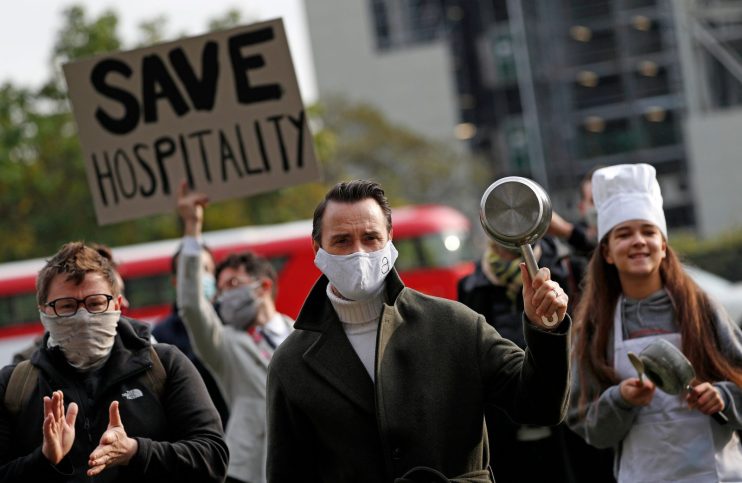The Piano Works and Kerb market bosses among those pushing Rishi Sunak to back hospitality investment

London hospitality firms including The Piano Works, street food market Kerb and bar operator Lollipop have called on the government to incentivise investors to help rebuild the sector without burdening struggling companies with extra debt.
In a letter seen by City A.M, The Piano Works founder Alan Lorrimer, UK Hospitality and the Night Time Industries Association have outlined proposals to adapt the Enterprise Investment Scheme (EIS).
The changes proposed would be “an equity alternative” to the Coronavirus Business Interruption Loan scheme, the letter said, as struggling businesses risk becoming overburdened by debt during the crisis.
The EIS allows financial backers to access income tax relief on up to 30 per cent of their investment – up to a limit of £1m – and is designed to boost enterprise and entrepreneurship.
Under the new proposals, which would last 24 months, income tax relief at the point of investment in hospitality businesses would be increased to 75 per cent, offset by the removal of loss relief.
The letter also recommended that older and larger businesses are eligible to benefit from the scheme.
Currently, EIS is restricted to firms that have been operating for fewer than seven years and have fewer than 250 full-time employees.
The letter said the investment should also be approved to be used to repay CBILs and make acquisitions.
At risk
Alan Lorrimer, who founded The Piano Works in 2015, said his company had no option other than to take out a six-month CBIL at the beginning of the pandemic, and is in the process of finalising an extension in order to survive.
The Piano Works’ venues in the West End and Farringdon have not been able to reopen since March, as initial plans to relaunch this autumn were quashed by the introduction of new restrictions.
Hospitality balance sheets are “hugely overleveraged” and without extra help “so many places will close for good”, Lorrimer told City A.M.
Changes to the EIS rules would incentivise funding for “what would be a hugely successful business in three to four years time, as a long-term investment,” he said.
He added: “We know the public will come flocking back to the venues they love so much as soon as they are able, and we want as many businesses as possible to still be around for the next roaring twenties”.
Street food market operator Kerb and bar and restaurant chain Lollipop are among the London businesses that have backed the proposals.
Sebastian Lyall, founder of Lollipop, which hit the headlines with the launch of London’s first naked restaurant The Bunyadi in 2016, said the changes would allow his business to pay down debts accrued during the crisis.
Funding jitters
He added that the Lollipop, which owns four other bars across the capital, had been in talks over potential funding, but investors were “jittery because of the state of our industry”.
The proposals “make the industry more attactive to potential investors”.
Kerb chief executive Simon Mitchell said that furlough had been useful for helping employees – although the company made 20 head office staff redundant before the extension was announced – but that new measures are needed to “plug the gap” for viable firms that are unable to trade.
“It is a really practical, entreprenuerial way of helping businesses and that is what is needed right now.”
In response, the Treasury said it had supported the industry throughout the pandemic through grants, loans and the furlough scheme.
A spokesperson said: “We keep our support under constant review and are committed to helping people and businesses through this crisis.”